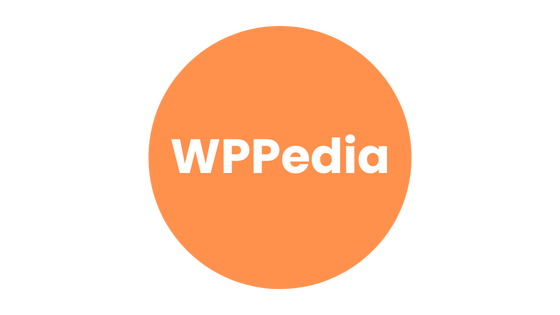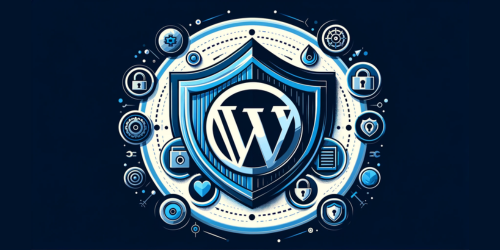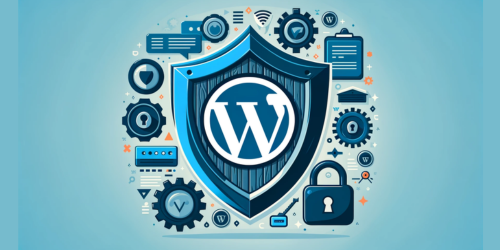Have you ever wondered who controls the digital juggernaut that powers over 40% of the web? Welcome to the intriguing world of WordPress, where ownership isn’t just a straightforward affair. This isn’t your typical corporate saga; it’s a tale of dual domains, community spirit, and visionary leadership.
WordPress, a name synonymous with web development, blogging, and online publishing, stands unique not just in its capabilities but also in its ownership structure. This article demystifies the complexities surrounding who owns WordPress. At its core, WordPress splits into two distinct entities: WordPress.org and WordPress.com, each with its own governance and purpose. The former thrives as a community-driven, open-source project under the stewardship of the WordPress Foundation, a bastion of free, collaborative software development. In contrast, WordPress.com, steered by Automattic Inc., epitomizes the entrepreneurial spirit, delivering a commercial platform based on the same technology.
In the following sections, we’ll peel back the layers of this intricate ownership model, revealing the forces and faces behind one of the internet’s most pivotal platforms.
Key Takeaways:
- Ownership Distinction: Understanding the dual ownership structure of WordPress.org and WordPress.com.
- Foundational Roots: Insights into the origins of WordPress and the roles of its co-founders.
- Community Involvement: Grasping the unique community-based nature of WordPress.org.
- Corporate Control: Exploring Automattic’s role in the ownership of WordPress.com.
- Leadership Influence: Recognizing Matt Mullenweg’s impact on WordPress’s development.
1. The WordPress Foundation: Guardian of WordPress.org
In the realm of WordPress, the WordPress Foundation is akin to a sentinel, safeguarding the ethos and perpetuity of WordPress.org. Established as a non-profit organization, its primary mission is to ensure that WordPress remains a free, open-source platform, accessible to all. This dedication to openness and community engagement is not just noble; it’s the lifeblood of WordPress.org.
The Foundation’s role extends beyond mere oversight. It’s about nurturing a vibrant, collaborative community where individuals from diverse backgrounds contribute to the software’s growth. Unlike typical corporate models, the Foundation doesn’t own WordPress in the conventional sense; rather, it serves as a custodian, ensuring that the software remains a public resource, unfettered by commercial constraints. This community-driven approach is critical to understanding the essence of WordPress.org – a digital commons where innovation and inclusivity reign supreme.
For a deeper understanding of the WordPress Foundation and its pivotal role, explore The WordPress Foundation Story.
2. Automattic Inc: The Force Behind WordPress.com
Enter Automattic Inc., the commercial force driving WordPress.com. As a private enterprise, Automattic stands in stark contrast to the communal ethos of WordPress.org. Founded by Matt Mullenweg, one of WordPress’s original architects, Automattic represents the entrepreneurial spirit morphed into a corporate entity.
WordPress.com, under Automattic’s purview, is a for-profit platform offering managed WordPress hosting. This arrangement provides a more controlled, user-friendly experience, albeit with some restrictions not found in its .org counterpart. Here, Automattic assumes a more traditional ownership role, managing and monetizing the platform through various service offerings.
This distinction in ownership and control between WordPress.org and WordPress.com is pivotal. While both are rooted in the same technology, they diverge in philosophy and execution – one champions community-led, open-source development, and the other, a streamlined, commercially-hosted service. For further insights into Automattic’s role, visit their corporate site.
3. Matt Mullenweg and Mike Little: Pioneers of WordPress
The inception of WordPress can be traced back to the vision and ingenuity of two individuals: Matt Mullenweg and Mike Little. Their collaboration marked the birth of WordPress as a user-friendly blogging platform, a response to the burgeoning demand for an accessible online publishing tool.
Mullenweg and Little’s journey started with a simple yet profound goal: to create a platform that empowered users to express themselves online without technical barriers. Their foresight and commitment laid the groundwork for what would become a revolutionary tool in digital publishing. Mullenweg’s $400M Net Worth can provide you the outcome of his journey.
While both co-founders have taken different paths since those early days, their legacy is etched in every line of WordPress’s code and community. Matt Mullenweg, in particular, continues to be a guiding force in the platform’s evolution, embodying the spirit of open-source innovation. To learn more about their groundbreaking work, delve into the WordPress history.
4. Understanding the Community’s Role in WordPress.org
At the heart of WordPress.org lies its community – a melting pot of developers, designers, content creators, and enthusiasts. This open-source project thrives on the contributions and collaborations of this diverse group, challenging the traditional notions of ownership.
In this community-centric model, ownership is democratized. It’s a collective effort where each contribution, whether a line of code, a plugin, or a theme, enriches the platform. This communal involvement fosters a sense of shared responsibility and collective ownership, a stark contrast to the controlled environment of WordPress.com.
The impact of this approach is profound. It not only accelerates innovation and improvement but also fosters a strong sense of belonging and investment among its members. For an inside look into this vibrant community and its role in shaping WordPress, visit the WordPress Community Portal.
5. Conclusion: A Unique Ownership Model in the Digital World
In conclusion, WordPress presents a fascinating study in ownership and governance within the digital landscape. Its dual structure—combining the open-source, community-driven WordPress.org and the commercially-oriented WordPress.com—exemplifies a pioneering approach in the tech world. This unique model has not only fueled WordPress’s remarkable evolution but also cemented its position as a cornerstone of the internet.
By balancing communal innovation with entrepreneurial acumen, WordPress has managed to cater to a diverse range of users and needs, showcasing the potential and versatility of hybrid governance in technology.
6. FAQ Section
Q: Who is the founder of WordPress?
WordPress was co-founded by Matt Mullenweg and Mike Little.
Q: Who owns the WordPress website?
The WordPress website, WordPress.com, is owned by Automattic, a company founded by Matt Mullenweg. Deep dive into Who actually owns WordPress to get the clear insight.
Q: Is WordPress owned by Facebook?
No, WordPress is not owned by Facebook. It is an independent entity.



